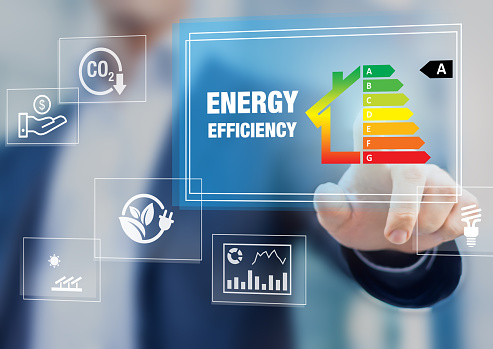What is a Good HERS Rating? A Guide for Florida Homeowners
As a Florida homeowner, you’re likely concerned about energy efficiency and the environmental impact of your home. One way to measure a home’s energy efficiency is through the Home Energy Rating System (HERS) Index. In this blog post, we will explore what a good HERS rating is for homes and why it matters to you as a Florida homeowner.
By: Christine Lam
Understanding the HERS Rating System
The HERS Index is an industry-standard rating system developed by the Residential Energy Services Network (RESNET) to assess the energy efficiency of homes. It compares a home’s energy performance to a reference home built to the 2006 International Energy Conservation Code (IECC).
The HERS Index is a scale that ranges from 0 to 150, with lower numbers representing better energy efficiency. A HERS Index of 0 indicates a “net-zero energy” home, meaning it produces as much energy as it consumes. On the other hand, a rating of 150 implies that the home uses 50% more energy than the reference home.

Determining a Good HERS Rating for Florida Homes
While a HERS rating of 0 is the ideal scenario, achieving it may not be practical for all homes. However, a lower HERS rating generally translates to higher energy efficiency and lower utility bills. For Florida homeowners, aiming for a HERS rating below the state average of 58 is a reasonable goal.
The HERS Index takes into account various factors, including insulation, air leakage, HVAC efficiency, and appliance performance. By focusing on these areas, you can improve your home’s energy efficiency and reduce your carbon footprint.
Benefits of a Good HERS Rating
1. Lower Energy Costs: Energy-efficient homes consume less electricity, which translates to lower energy bills. In Florida’s warm climate, reducing air conditioning usage through energy-efficient design and insulation can make a significant difference in your monthly expenses.
2. Environmental Sustainability: By striving for a lower HERS rating, you contribute to reducing greenhouse gas emissions and environmental impact. Florida, with its unique ecosystem, is particularly susceptible to the effects of climate change. Investing in an energy-efficient home helps mitigate these impacts and contributes to a greener future.
3. Enhanced Comfort: An energy-efficient home is also a more comfortable home. Proper insulation, air sealing, and high-efficiency HVAC systems ensure more consistent temperatures throughout the year, reducing hot spots, drafts, and humidity issues.
4. Increased Home Value: Energy-efficient homes tend to have higher resale values and are more appealing to potential buyers. A good HERS rating not only saves you money while you live in the home but also increases its market value, making it a wise long-term investment.
Improving Your HERS Rating
Here are some steps you can take to improve your home’s HERS rating:
1. Insulation: Ensure proper insulation in your attic, walls, and floors. In Florida, adequate insulation is crucial to minimize heat gain and maximize cooling efficiency.
2. Air Sealing: Seal air leaks around windows, doors, electrical outlets, and plumbing penetrations to prevent energy loss.
3. Efficient HVAC Systems: Upgrade to energy-efficient heating, ventilation, and air conditioning systems. Consider regular maintenance and the use of programmable thermostats to optimize energy usage.
4. Lighting and Appliances: Replace traditional incandescent bulbs with energy-efficient LEDs and select Energy Star-rated appliances for your home.
5. Renewable Energy: Install solar panels to generate clean energy and potentially achieve a net-zero or even positive HERS rating.
Conclusion
As a Florida homeowner, striving for a good HERS rating is a wise investment for your finances, comfort, and the environment. By implementing energy-efficient measures such as insulation, air sealing, and efficient HVAC systems, you can reduce energy consumption, lower your utility bills, and increase your home’s value.
Consider reaching out to a professional energy auditor or contractor who specializes in calculating a home’s energy efficiency to assess your home’s current performance and provide tailored recommendations. Together, let’s build a greener, more sustainable future for Florida and make a positive impact on our planet.
